Nos dias 24, 25 e 26 de junho decorreu o XXXIII Encontro da Associação das Universidades de Língua Portuguesa – AULP na Universidade Federal do Rio de Janeiro, UFRJ – na Ilha do Fundão – Fundação COPPETEC, Rio de Janeiro, Brasil com o tema Migrações, Desigualdades e Desenvolvimento Sustentável.
Mais de 150 reitores, presidentes e outros académicos estiveram presentes neste evento de três dias.
Acompanharam o Presidente da AULP, na sessão solene de abertura, o Reitor da UFRJ, Roberto Medronho, a Vice-Reitora da UFRJ, Cássia Curan Turci, a Presidente da Andifes e Reitora da Universidade de Brasília, Márcia Abrahão, e em representação da CAPES, o Diretor de Relações Internacionais da CAPES, Rui Oppermann. A sessão contou com uma apresentação do Quinteto Experimental de Sopros da UFRJ que os participantes puderam apreciar.
No primeiro dia, além da habitual reunião do conselho de administração da AULP, o programa contou com uma sessão de assinatura de convénios entre as instituições de ensino superior, momento presidido pelo Vice-Reitor da Universidade de Macau, RAEM-China, Rui Martins. Após o que se seguiu a apresentação dos trabalhos da sessão I – Desafios das Migrações, e a apresentação dos Programas de Mobilidade AULP pela equipa da sede. A jornada de trabalho encerrou com uma receção de boas-vindas AULP, pelo Café del Rio no jardim tropical.
No segundo dia do evento de manhã, foram apresentados os trabalhos científicos selecionados do Tema II – Desigualdades do Mundo Global e na parte da tarde, no Tema III – Educação para o Desenvolvimento Sustentável, foram apresentados os trabalhos finais. No final da jornada, foi lançada a obra comemorativa do XXXII Encontro da AULP, Brasil e África: Outro Horizonte (Relações e Política Brasileiro-Africana) de José Honório Rodrigues. A apresentação foi feita pela Prof.ª Monica Lima e Souza, Coordenadora do Laboratório de Estudos Africanos (LEÁFRICA) do Instituto de História da UFRJ e Coordenadora-Geral de Projetos e Internacionalização do Arquivo Nacional. O tradicional jantar de encerramento do evento, teve lugar no Cais do Oriente, animado com sons do Brasil.
No terceiro e último dia realizou-se a Assembleia Geral da AULP, onde foram eleitos os novos órgãos sociais tendo a Presidência da AULP transitado para a Universidade de Cabo Verde – UniCV, representada pelo Magnífico Reitor, Professor Doutor Arlindo Barreto. Os participantes assistiram ainda ao vídeo preparado pela Universidade do Zambeze apresentado pelo Reitor Bettencourt Capese e foi indicado que o XXXIV Encontro da AULP em 2025 se realizará na Universidade Zambeze, Beira, Moçambique. Foi proposto e aceite que o XXXV Encontro da AULP em 2026 seja realizado em Macau, para assinalar os 40 anos da AULP, os participantes assistiram ao vídeo preparado pela Universidade de Macau. Foram ainda apresentados mais dois convites para realizar os Encontros: Guiné-Bissau, 2027 (Universidade Lusófona da Guiné) e em 2028, em Portugal (Instituto Politécnico de Viseu) e os seus responsáveis apresentaram as condições que as suas IES asseguram.
Para a edição de 2026, o vice-reitor da Universidade de Macau, Rui Martins espera convidar representantes do ensino superior dos países de língua portuguesa para “reforçar o desenvolvimento de uma plataforma internacional de cooperação e intercâmbio” com a China e “promover ainda mais a cooperação mutuamente vantajosa entre todas universidades envolvidas no domínio da educação”, segundo nota da instituição. Rui Martins integrou a delegação liderada pelo reitor da UM, Song Yonghua, que se deslocou ao Rio de Janeiro para o encontro da AULP, conforme nota da agência Lusa.
Durante o último dia do evento foi entregue pelo recém eleito Presidente da AULP e Reitor da Universidade de Cabo Verde – UniCV, o prémio do vencedor do Prémio Fernão Mendes Pinto 2023, a Manuel Duarte João Pires, Professor na Universidade Politécnica de Macau, com a tese de doutoramento Português no ensino superior da China: os estudantes chineses de mobilidade de crédito em Portugal e o ensino para a interação cultural.
Este prémio, atribuído anualmente pela AULP, tem como objetivo galardoar uma dissertação de mestrado ou de doutoramento que contribua para a aproximação das Comunidades de Língua Portuguesa. O valor é de oito mil euros atribuído numa parceria conjunta entre a AULP e a CPLP, com publicação digital da responsabilidade do Camões, Instituto da Cooperação e da Língua, IP. As candidaturas à edição de 2024 estão a decorrer até 31 de julho de 2024.
A sessão solene de encerramento foi presidida pelo Presidente cessante da AULP, João Nuno Calvão da Silva em representação da Universidade de Coimbra e o Magnífico Reitor da Universidade Federal do Rio de Janeiro, Roberto Medronho, que tomaram a palavra. A sessão foi encerrada com uma apresentação musical dos Violões da UFRJ. Após a fotografia de grupo, os participantes foram encaminhados para o Parque Bondinho Pão de Açúcar de forma a apreciarem o panorama geral da cidade maravilhosa do Rio de Janeiro.
Reveja aqui o Encontro.
1º Dia: https://www.youtube.com/watch?v=zlUcFGWCpX0
2º Dia: https://www.youtube.com/watch?v=8mPWW9gYCkk
3º Dia: https://www.youtube.com/watch?v=AsLxNAhp38I
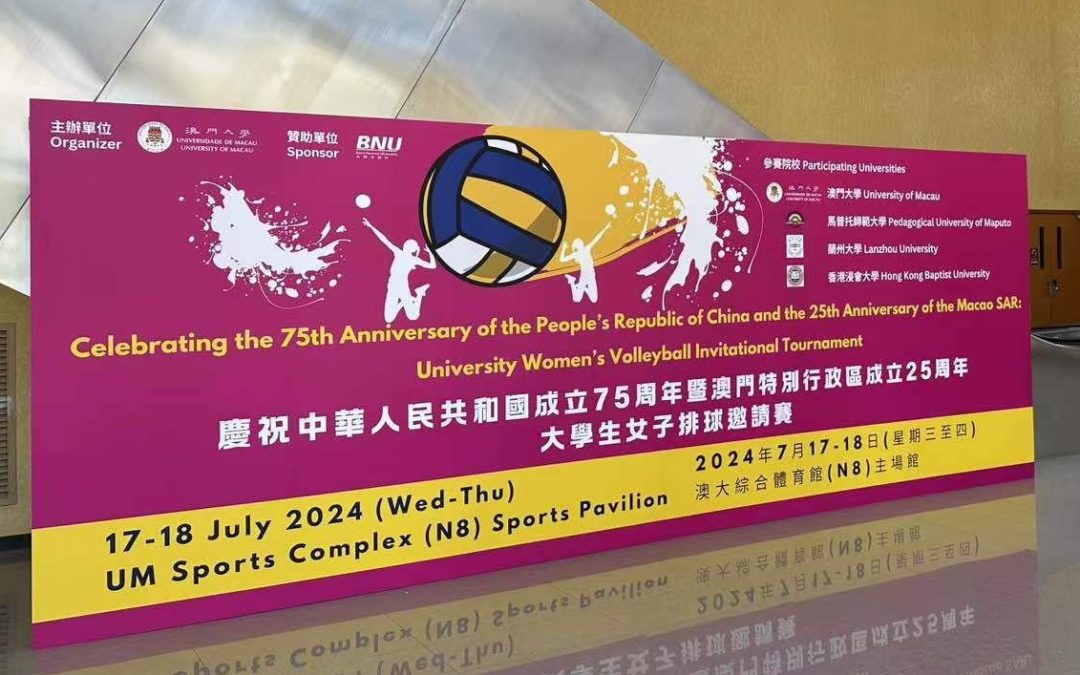


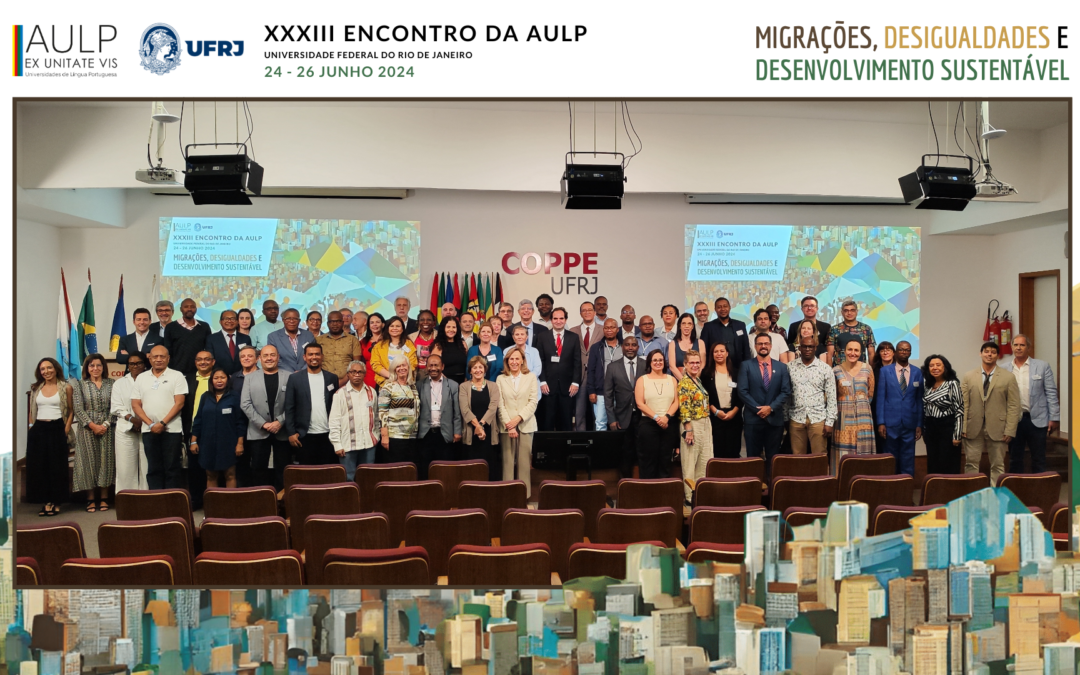
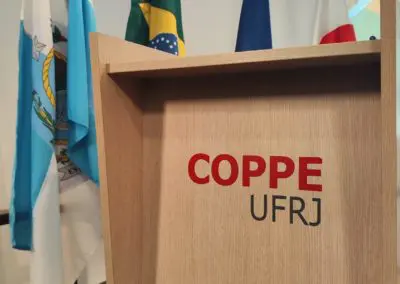
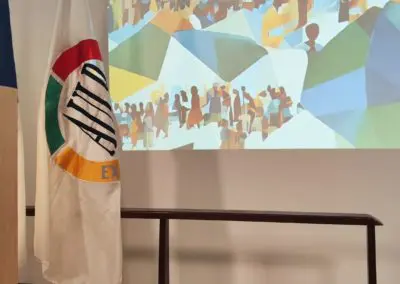
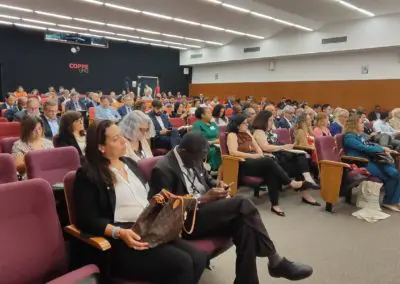
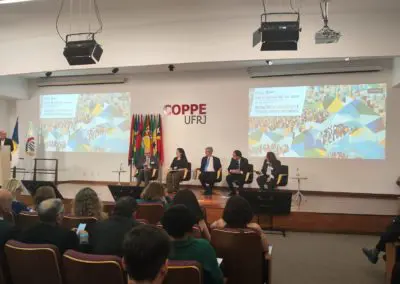
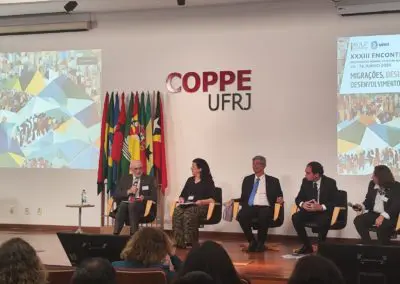
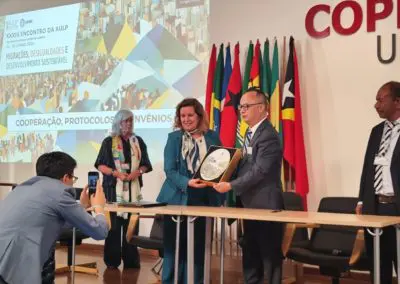
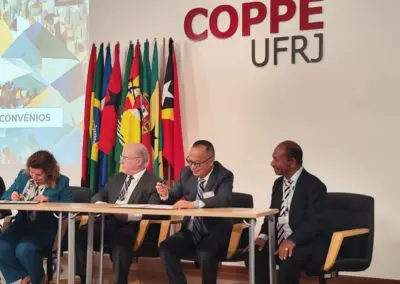
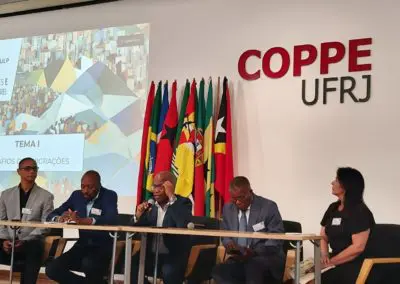
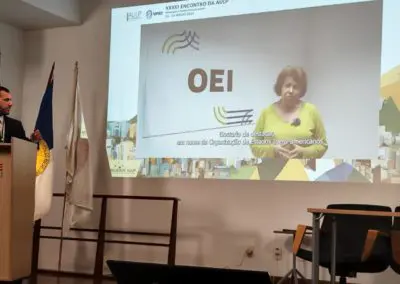
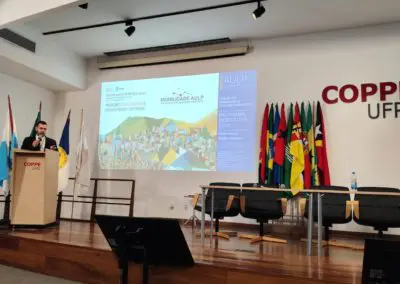
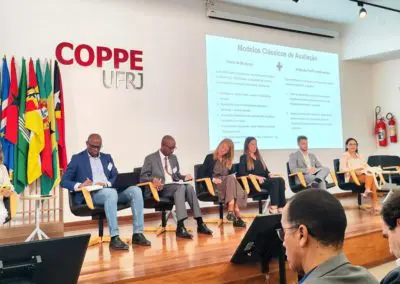
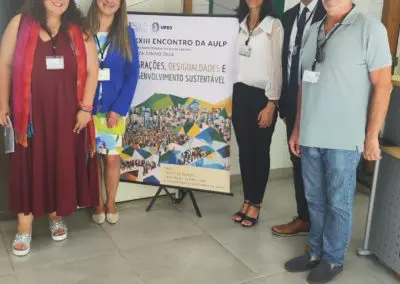
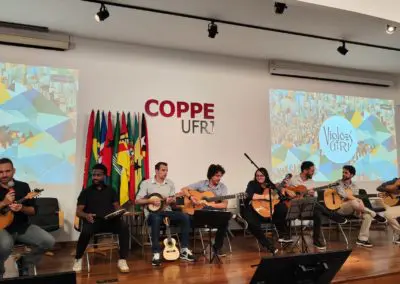
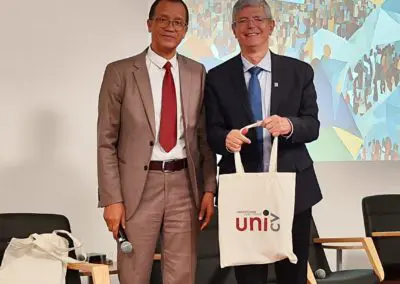
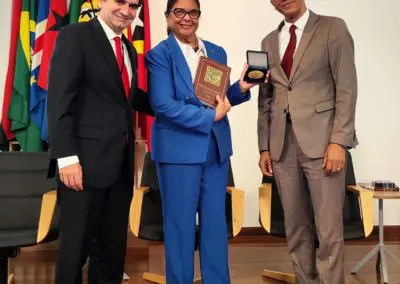
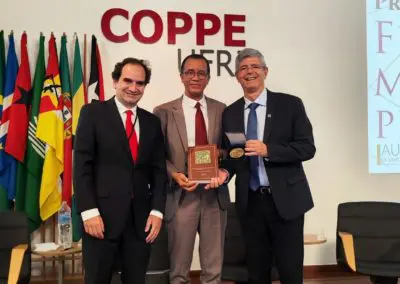
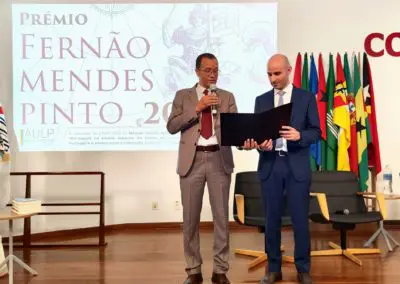
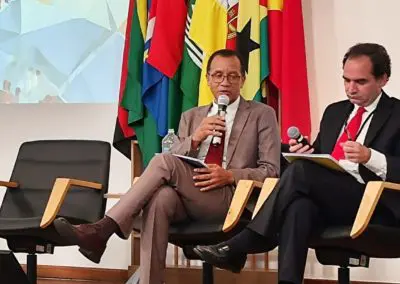
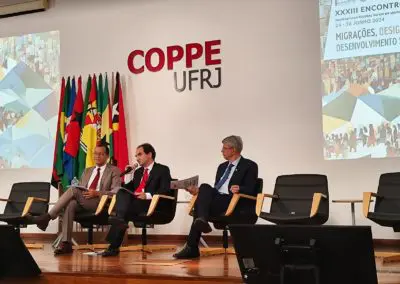
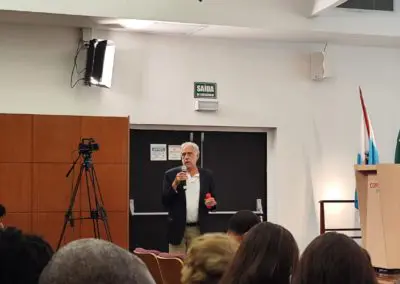
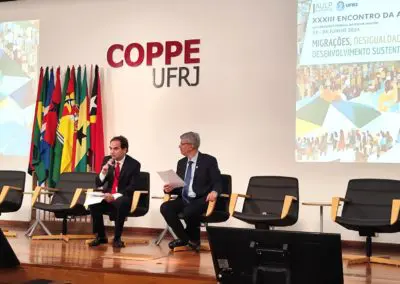
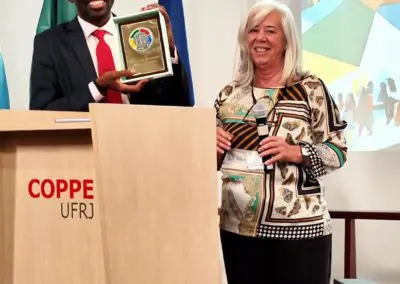
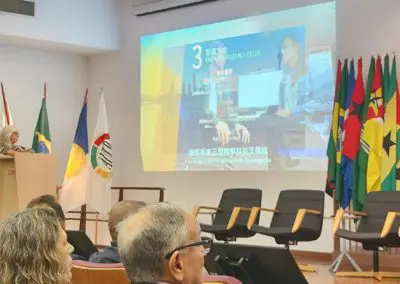
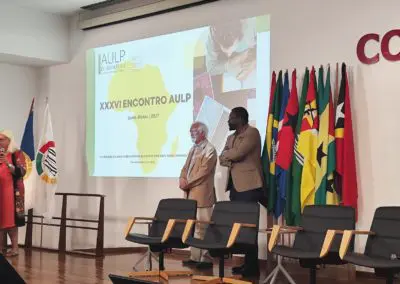
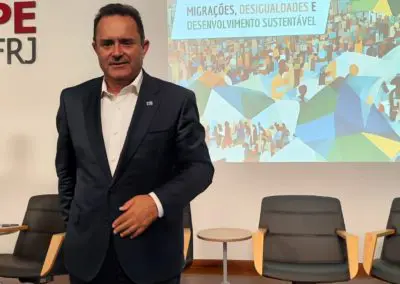
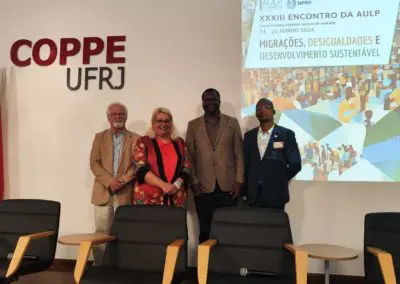
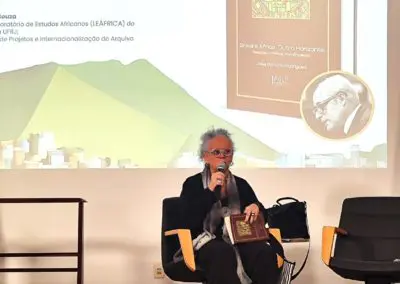
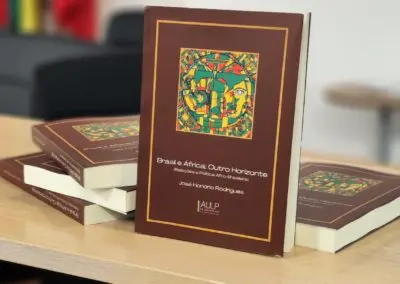
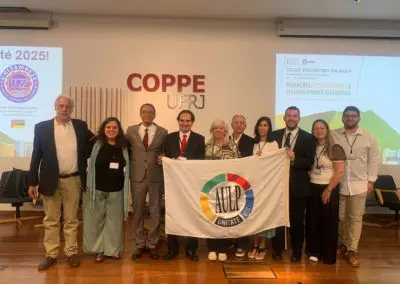
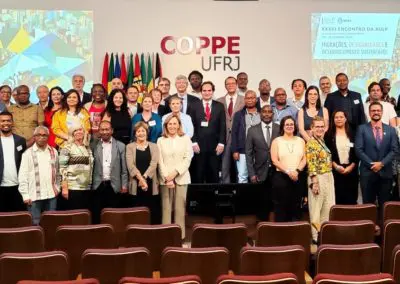








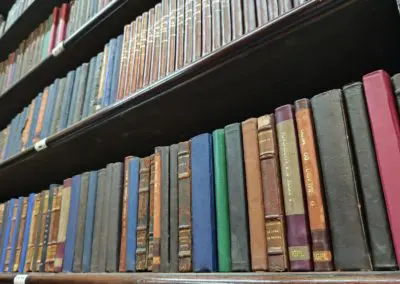


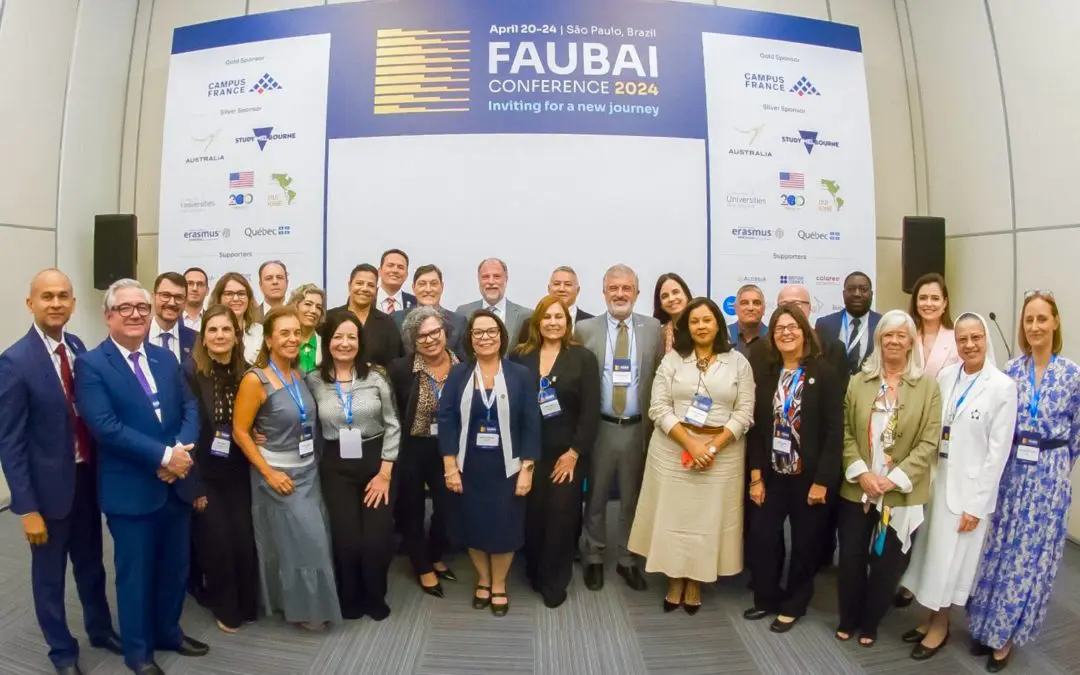


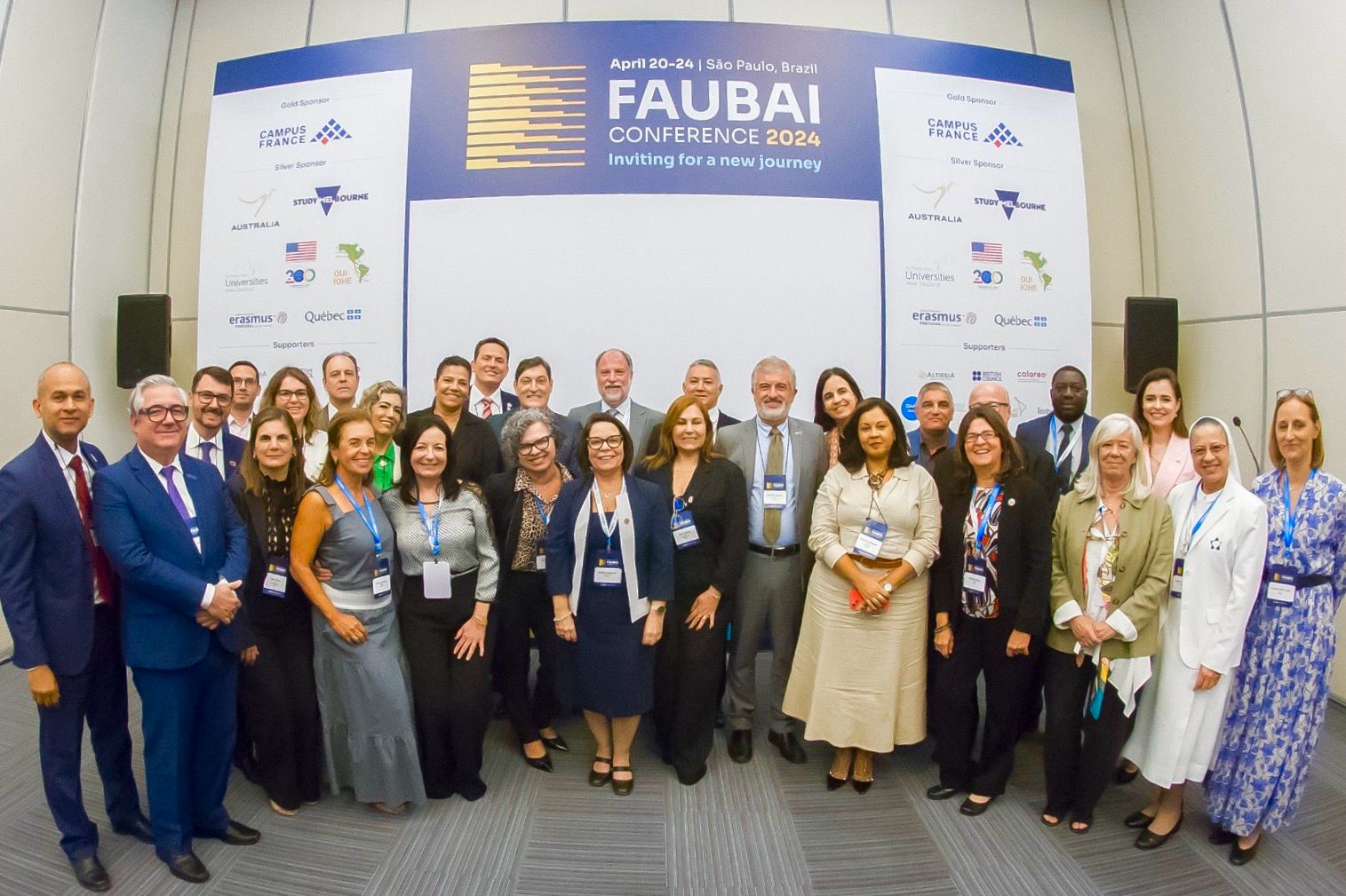
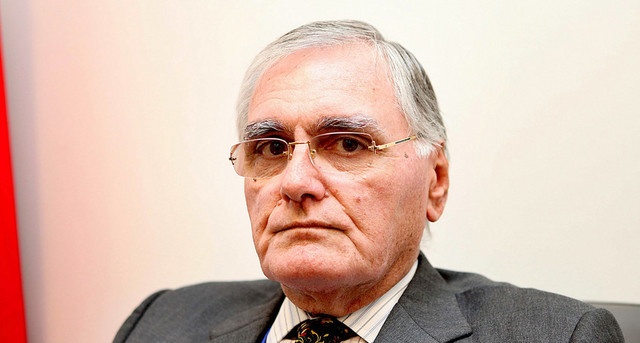
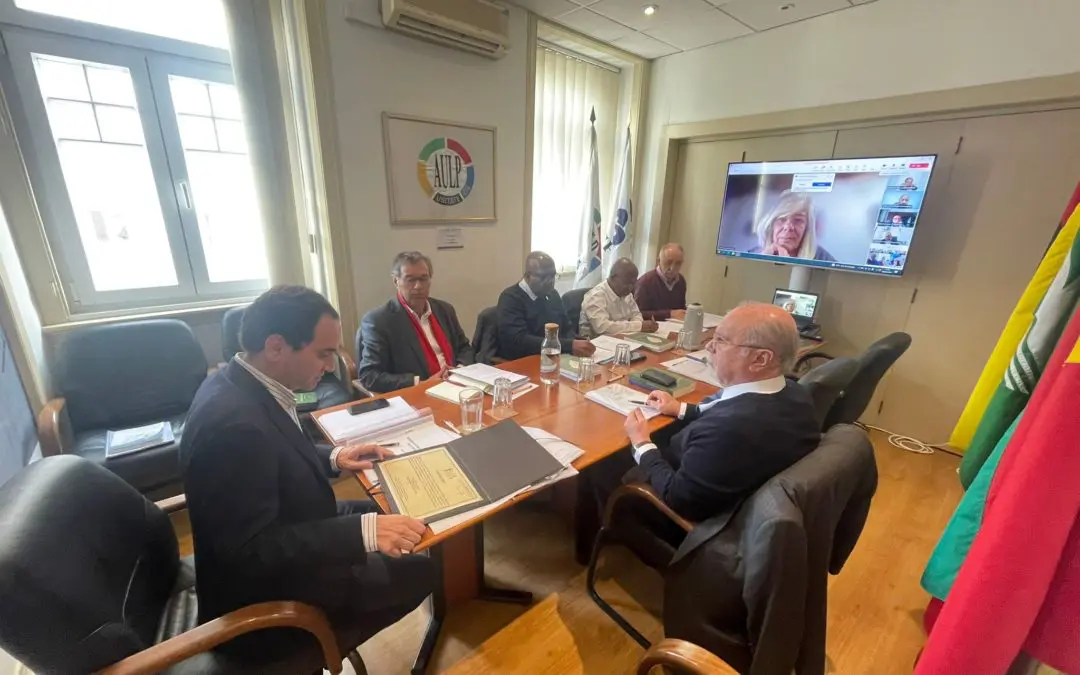
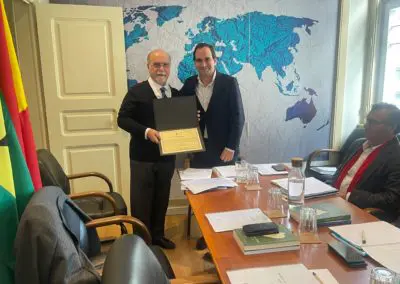

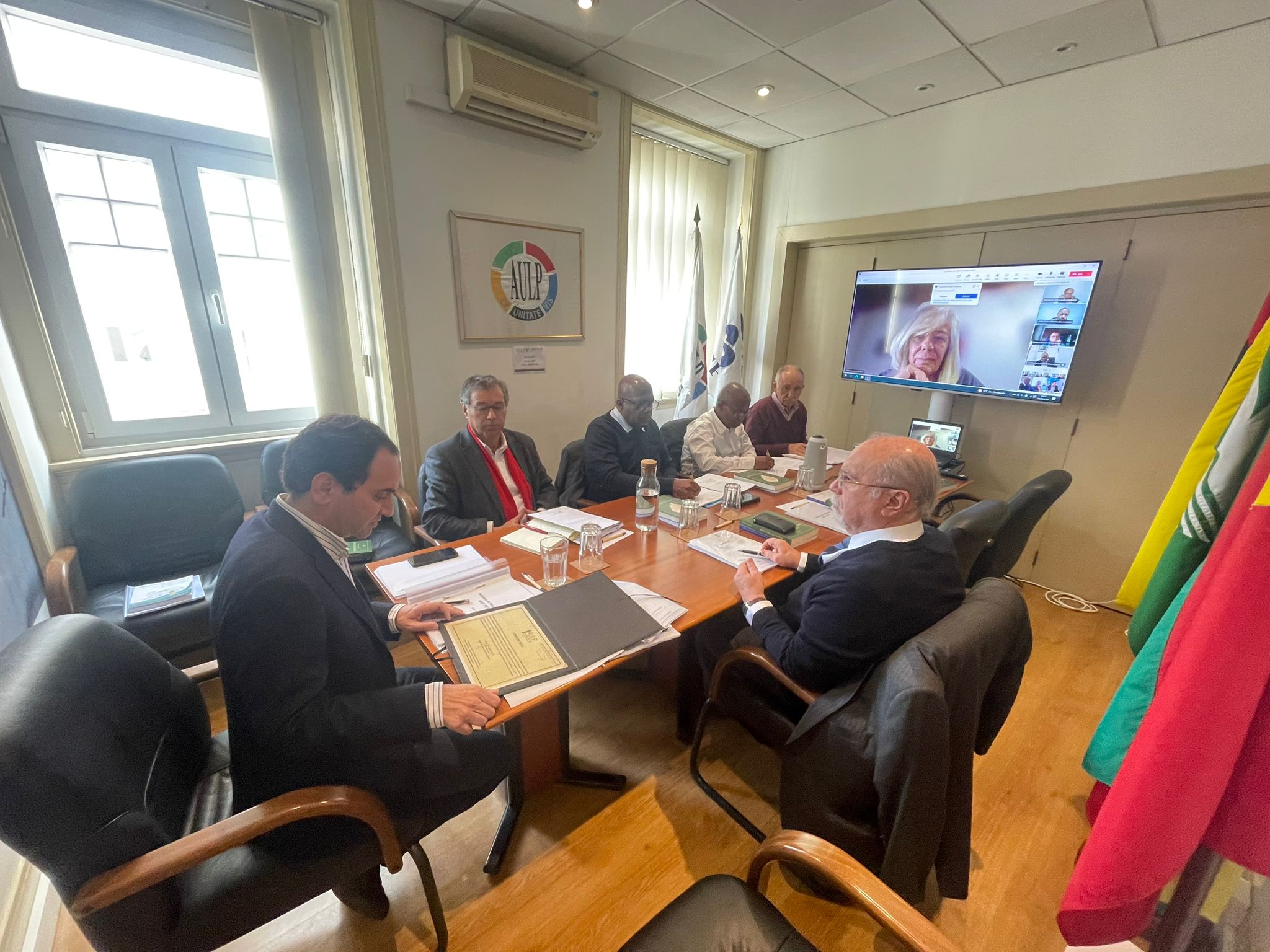
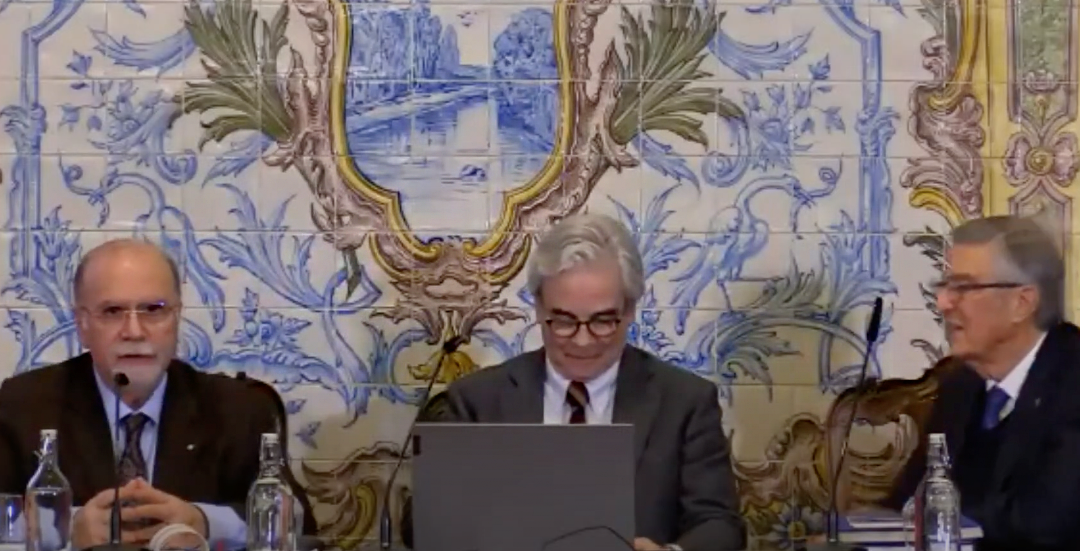
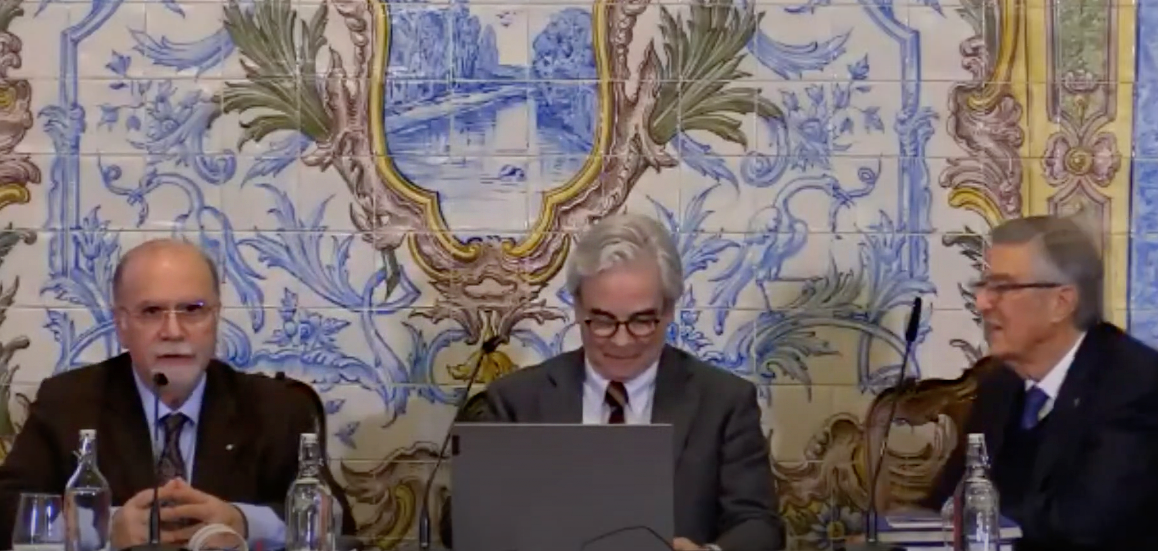




Comentários recentes